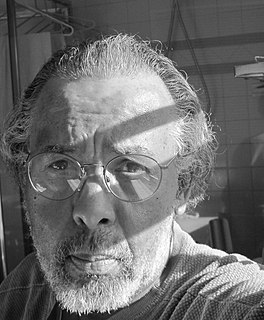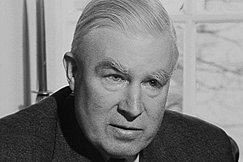A Quote by Joseph Jacobs
In 1893, Miss M. Roalfe Cox brought together, in a volume of the Folk-Lore Society, no less than 345 variants of 'Cinderella' and kindred stories showing how widespread this particular formula was throughout Europe and how substantially identical the various incidents as reproduced in each particular country.
Related Quotes
There are constraints on what counts as "Reformed." It's more than a name or a label. It's about belonging to a particular theological stream or tradition, which is shaped in important respects by particular thinkers and their work, particular arguments and ideas, a particular community (especially, particular church communities, denominations, and so on), particular liturgies or ways of worshipping and living out the Christian life, and particular confessions that inform the practices of these communities.
When we have an experience -- hearing a particular sonata, making love with a particular person, watching the sun set from a particular window of a particular room -- on successive occasions, we quickly begin to adapt to it, and the experience yields less pleasure each time. Psychologists call this habituation, economists call it declining marginal utility, and the rest of us call it marriage
Socially and politically, we seem to be living in dire times, worse times than in the past. But there were far worse horrors in our past. The writer's role is to be a truth sayer. I sincerely believe that each society, each country lives by a particular fantasy vision, a fantasy vision of itself. The truth of how they live is hardly ever faced.
When we haven't the time to listen to each other's stories we seek out experts to tell us how to live. The less time we spend together at the kitchen table, the more how-to books appear in the stores and on our bookshelves. But reading such books is a very different thing than listening to someone' s lived experience. Because we have stopped listening to each other we may even have forgotten how to listen, stopped learning how to recognize meaning and fill ourselves from the ordinary events of our lives. We have become solitary; readers and watchers rather than sharers and participants.
Before the famine, which was in the 1840s, that was an emotional turning point... There are various documents showing how the Elizabethan English, in particular, were shocked by Irish displays of affection, by the way women acted toward strangers, walking up and putting their arms around them and kissing them right full on the mouth.
How could politics be a science, if laws and forms of government had not a uniform influence upon society? Where would be the foundation of morals, if particular characters had no certain or determinate power to produce particular sentiments, and if these sentiments had no constant operation on actions?
John Lilly suggests whales are a culture maintained by oral traditions. Stories. The experience of an individual whale is valuable to the survival of its community. I think of my family stories-Mother's in particular-how much I need them now, how much I will need them later. It has been said when an individual dies, whole worlds die with them. The same could be said of each passing whale.
If Shakespeare's great plays are variants of stories, even novels, you can see how each character is telling his story from his perspective; each is vying with the others for dominance, but in the end, in tragedy, most of these voices will die, to be replaced by the yet more vigorous voice of a younger generation.








































